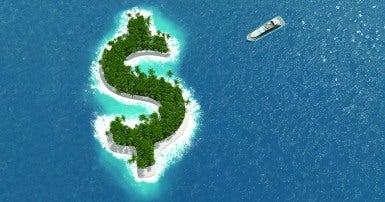
More often than not, these new owners – usually asset, hedge or private equity funds and holding companies – are based offshore in tax havens. For example, expert Dexter Whitfield recently discovered that three-quarters of the 735 current P3/PFI projects in the UK are at least partially owned by one of 12 offshore investment funds based in tax havens. Nearly half of UK P3 projects are majority controlled by these 12 funds. The five largest of these funds paid absolutely no tax to the UK despite recording profits of $3 billion CDN between 2011 and 2015.
More and more Canadian P3 projects, including roads and hospitals, have been acquired by offshore multinational corporations based in tax havens. This not only robs our governments of tax revenues, but also puts our public infrastructure under foreign control by corporations interested in squeezing the maximum profit from users, governments and workers.
Foreign ownership also gives corporations even more control because trade and investor protection agreements give them the ability to sue governments in secret tribunals for any potential loss of profit, using “investor state dispute settlement” rules.



